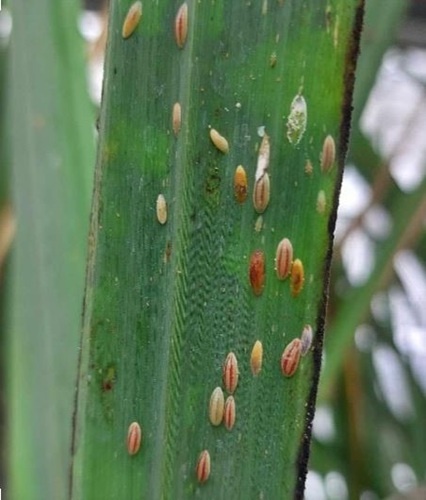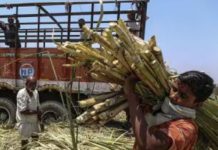Manila: The Sugar Regulatory Administration (SRA) is urgently appealing for emergency powers and the support of other government agencies to combat a rapidly spreading infestation of red-striped soft scale insects (RSSI) on Negros Island, an area responsible for more than 60 percent of the Philippines’ sugar production, according to the Philippine News Agency.
In a news release on Monday, the SRA said Administrator Pablo Luis Azcona raised alarm during an inter-agency meeting on Sunday, calling for strict quarantine protocols to stop the movement of infected sugarcane and planting materials.
According to Azcona, the pest, which had previously been contained in Luzon, appears to have reached Negros accidentally.
“RSSI was first detected in northern Negros Occidental at the end of March and was declared an infestation on May 22 when it spread to over 87 hectares,” Azcona said. “Despite early warnings to farmers, the area affected grew to 191 hectares by May 26 and then to 255 hectares by May 28.”
As of May 30, the infestation had expanded to nearly 425 hectares. This alarming growth has prompted the SRA to seek help from the Department of Agriculture (DA), the Bureau of Plant Industry (BPI), the provincial government of Negros Occidental, and other local government units.
Azcona noted that while the pest was initially detected in Luzon in 2022 and contained by 2024, its arrival in Negros poses a major threat to the country’s sugar supply and the livelihoods of sugarcane farmers.
“I’m asking the DA and BPI to restrict the entry of planting materials unless they are certified by the SRA or the DA,” Azcona said.
Deputy Administrator Ignacio Santillana highlighted the urgent need for a policy allowing emergency pesticide purchases and distribution, citing delays due to existing procurement rules under the Commission on Audit (COA).
“We want to use PHP1.5 million for pesticides while waiting for further assistance from the Department of Agriculture. But we can’t act unless emergency purchasing is allowed, and with the pest spreading so fast, this is clearly an emergency,” Santillana said.
The pest has now been detected in 13 towns and cities in Negros Occidental, with new reports coming from Mabinay in Negros Oriental and even Anilao in Panay. In the Victorias Milling District alone, 219 hectares of sugarcane fields have been affected.
The BPI expressed its willingness to help but noted that it currently lacks the legal authority to stop the transport of infected cane, as no formal quarantine policy is in place. A recent attempt to block a shipment from Escalante to Panay failed due to this legal gap.
To help contain the spread, the SRA is advising farmers not to use cane from infected areas and to treat all planting materials with pesticides before planting. Spraying operations are set to begin this week with support from the DA and BPI, and a public forum will be held on June 9 to inform farmers about the situation.
RSSI thrives in hot conditions and damages the underside of sugarcane leaves, weakening the plants and reducing yield. The SRA’s research division is also exploring the use of natural predators as a long-term alternative to chemical pesticides.
Azcona confirmed that the agency has requested PHP10 million in aid from Agriculture Secretary Francisco Tiu Laurel Jr., who responded positively. He also ordered the SRA to explore drone spraying to speed up pest control efforts, with the goal of covering up to 50 hectares a day if necessary.


















